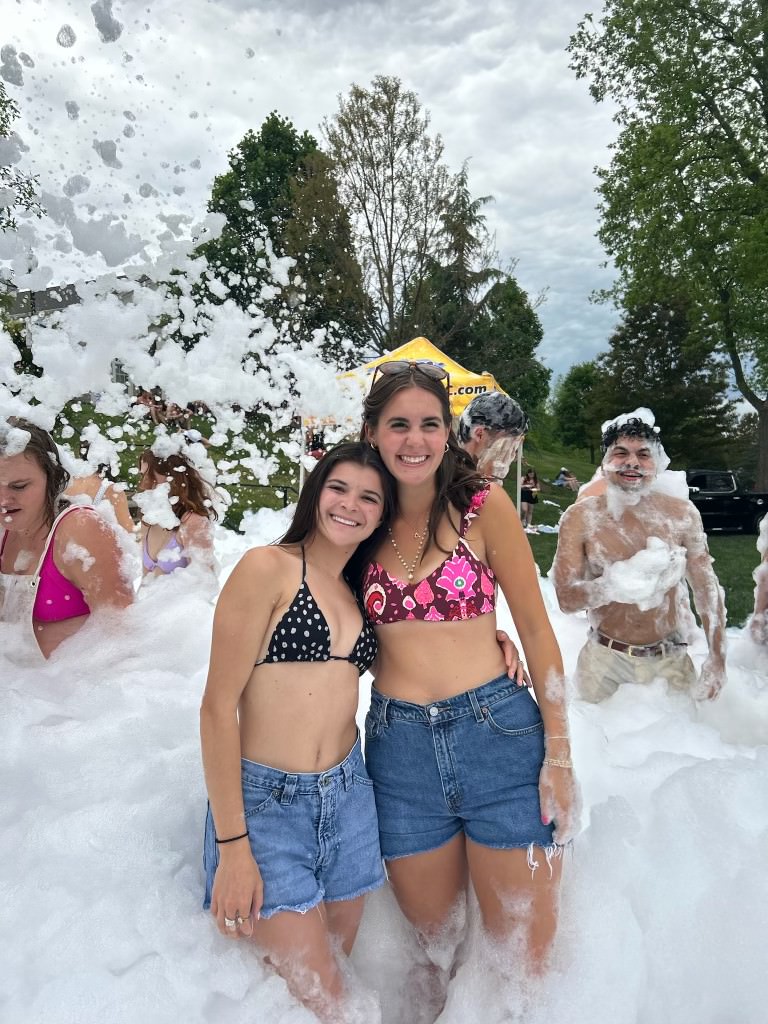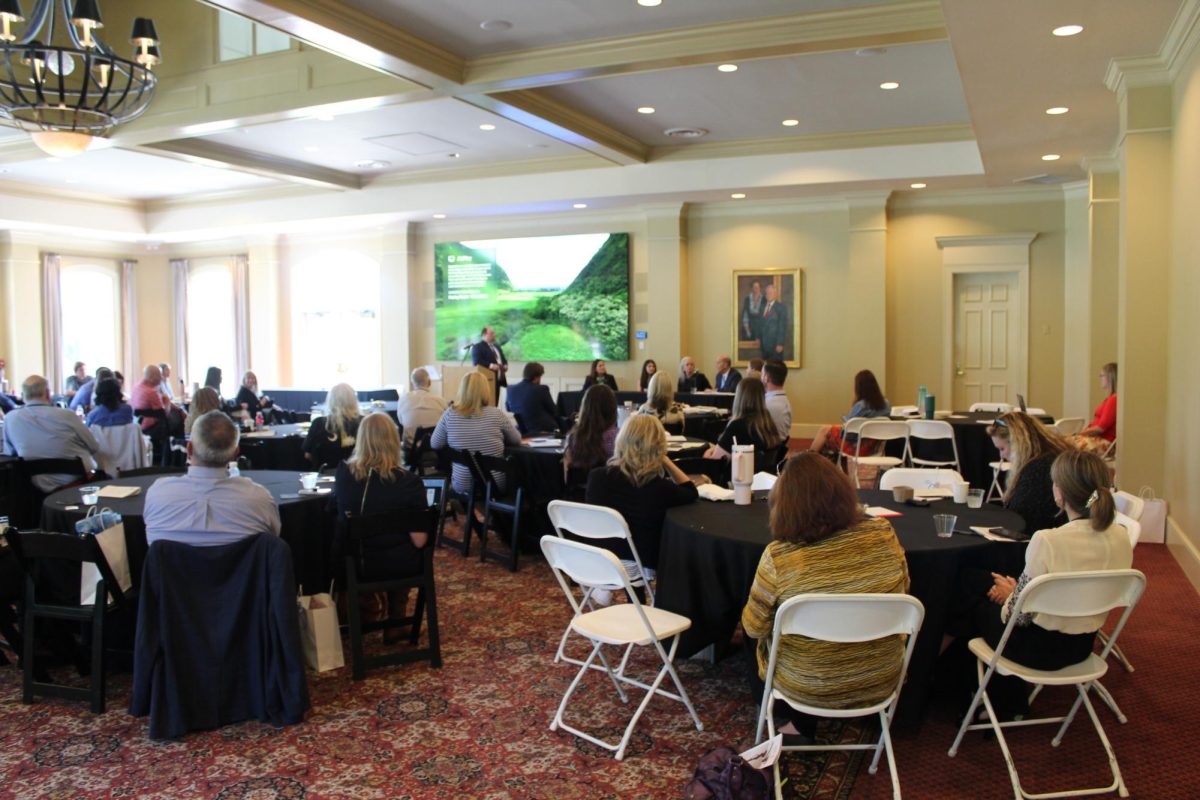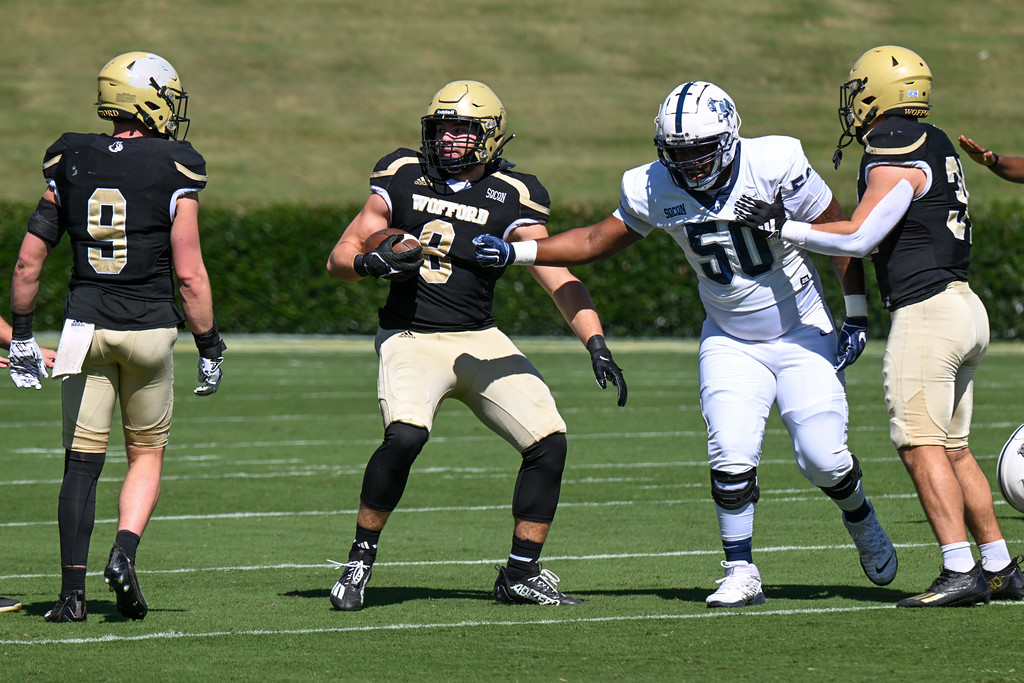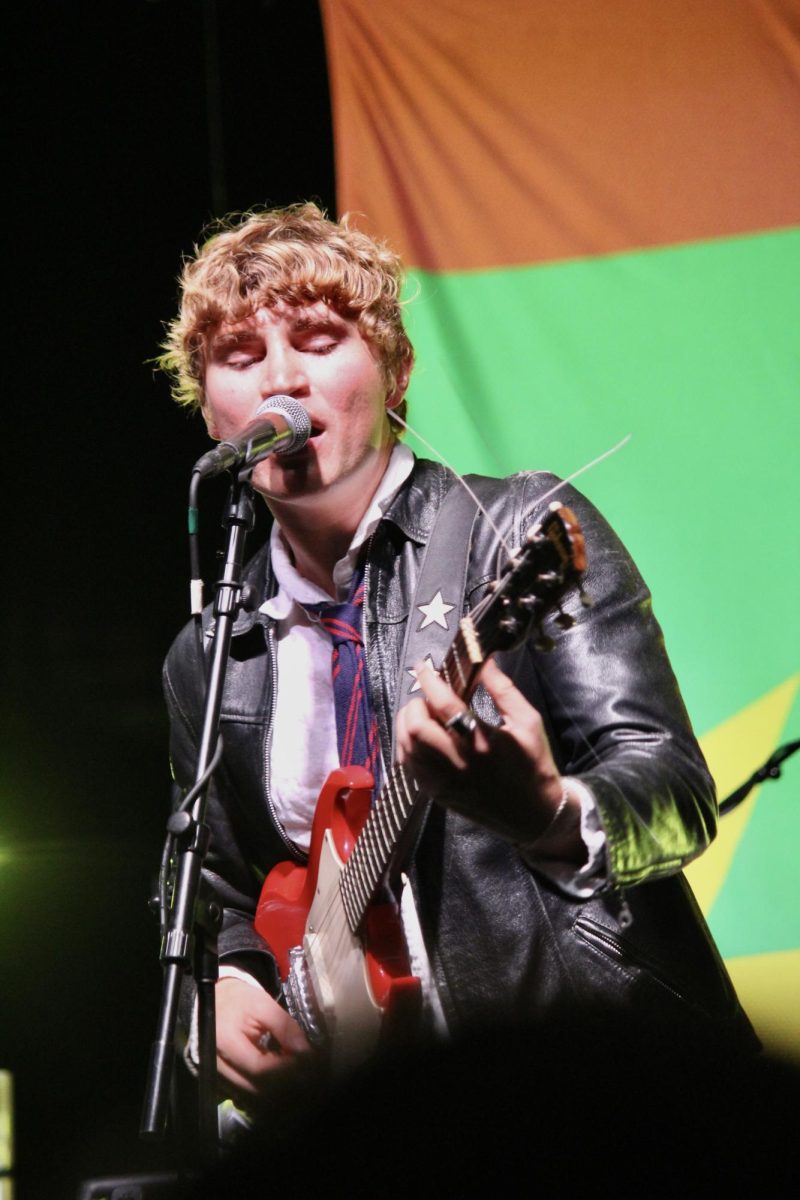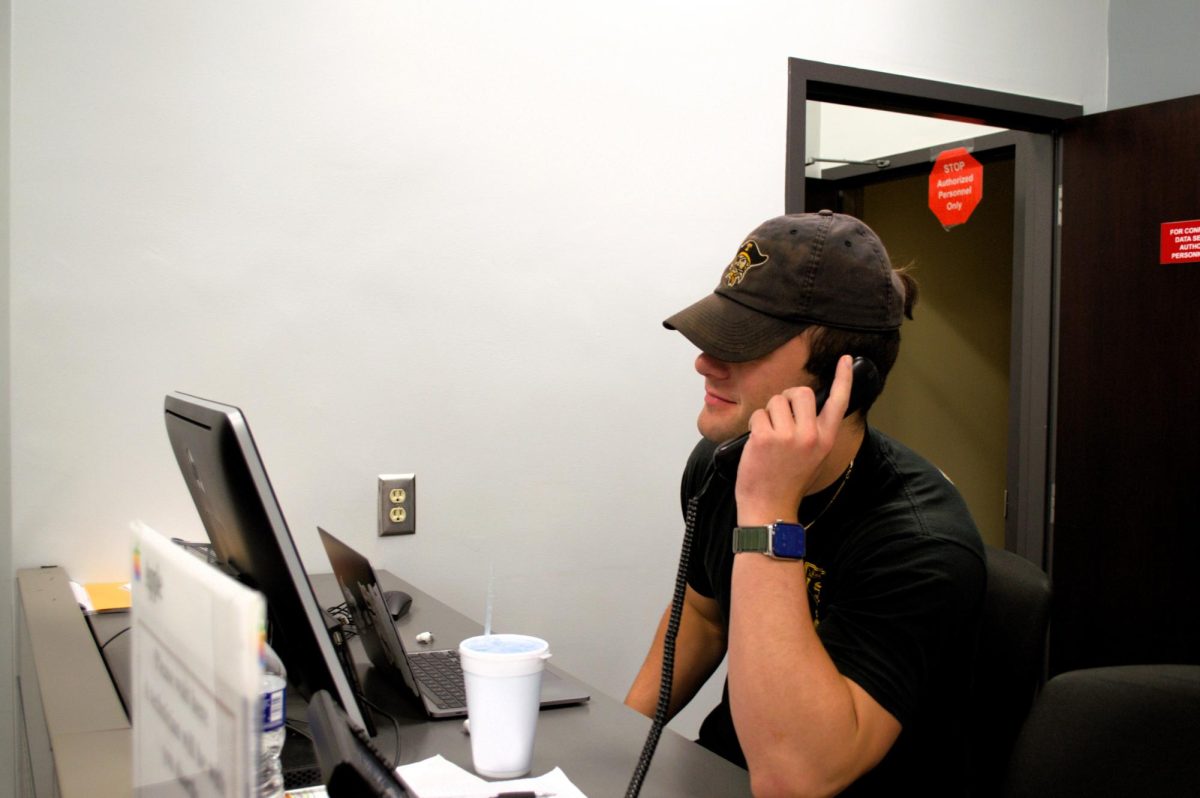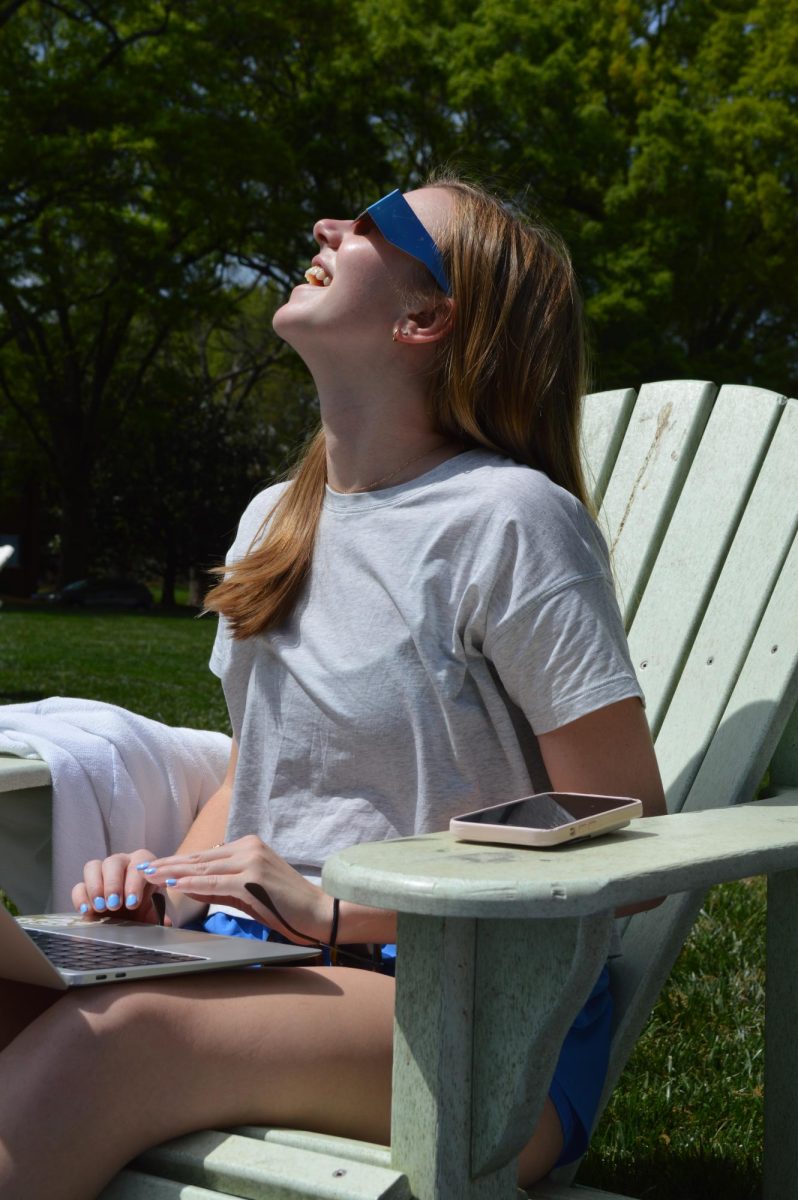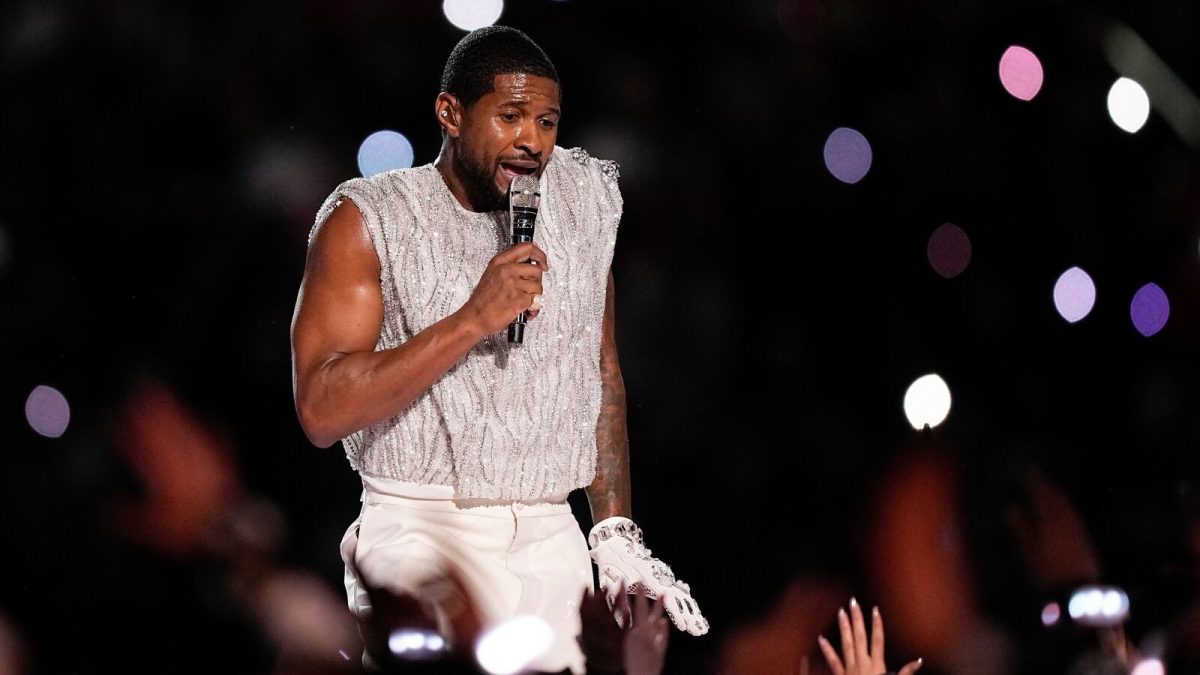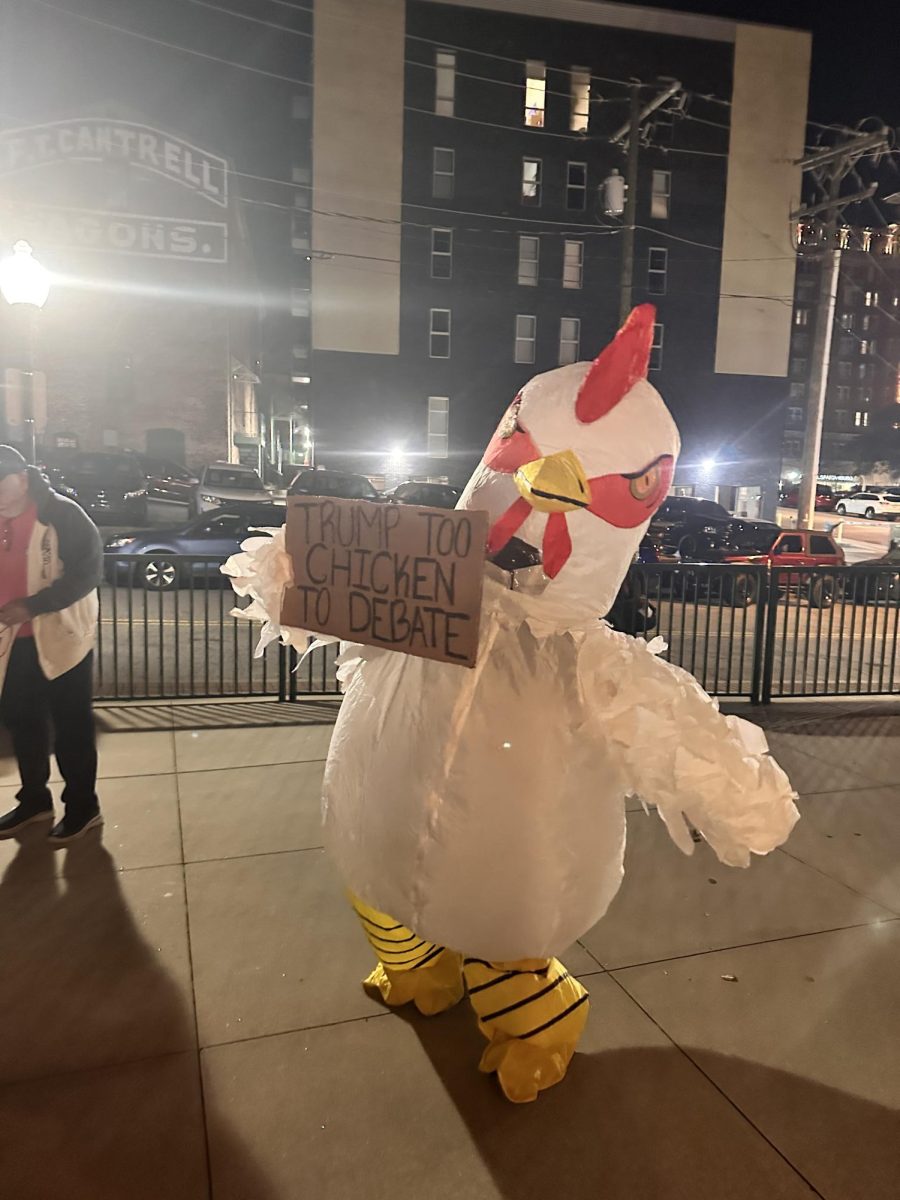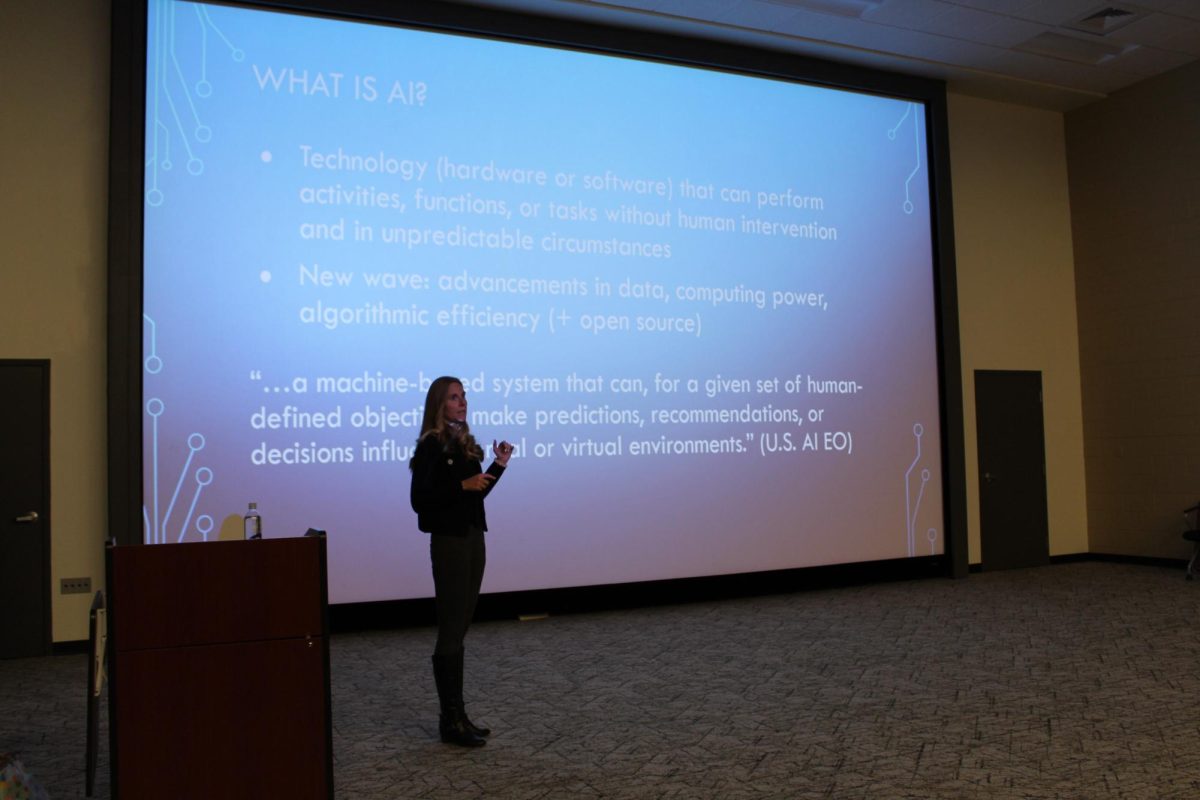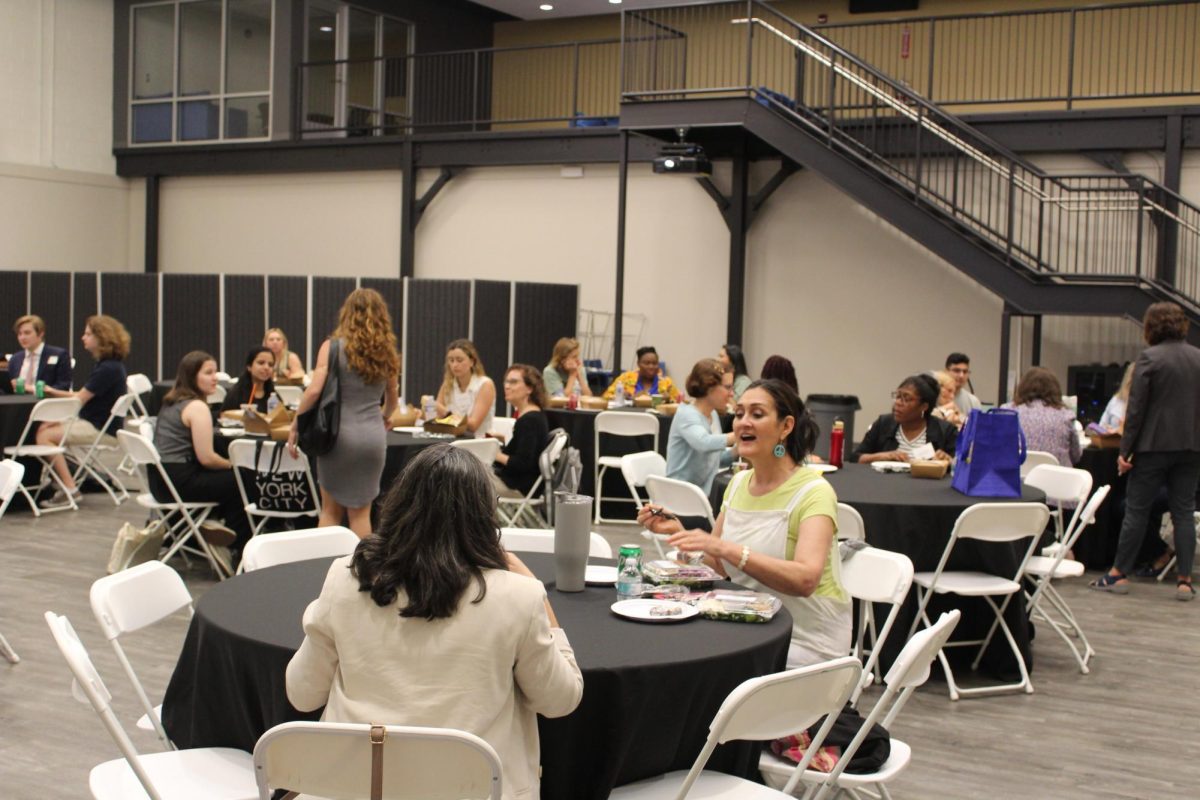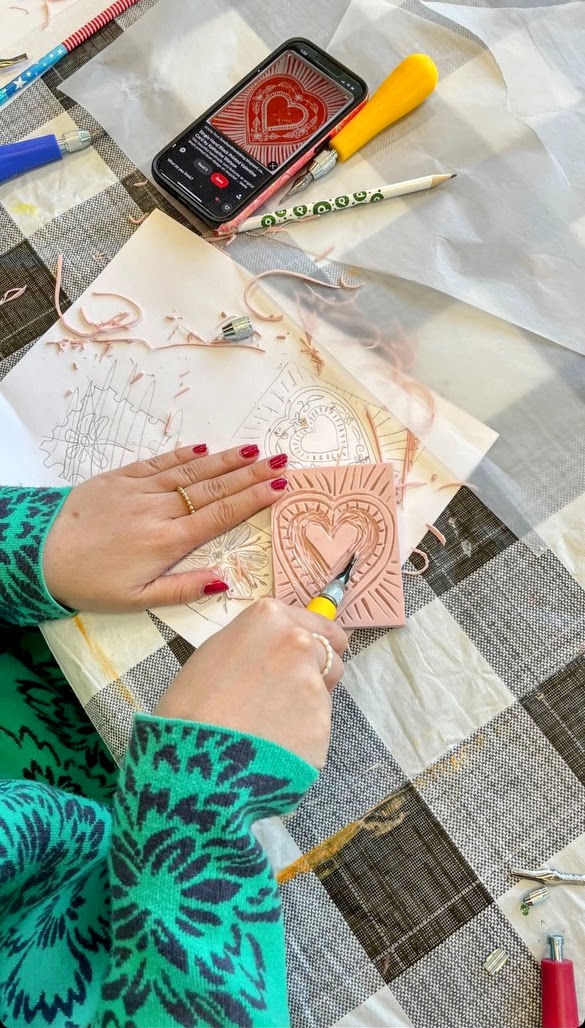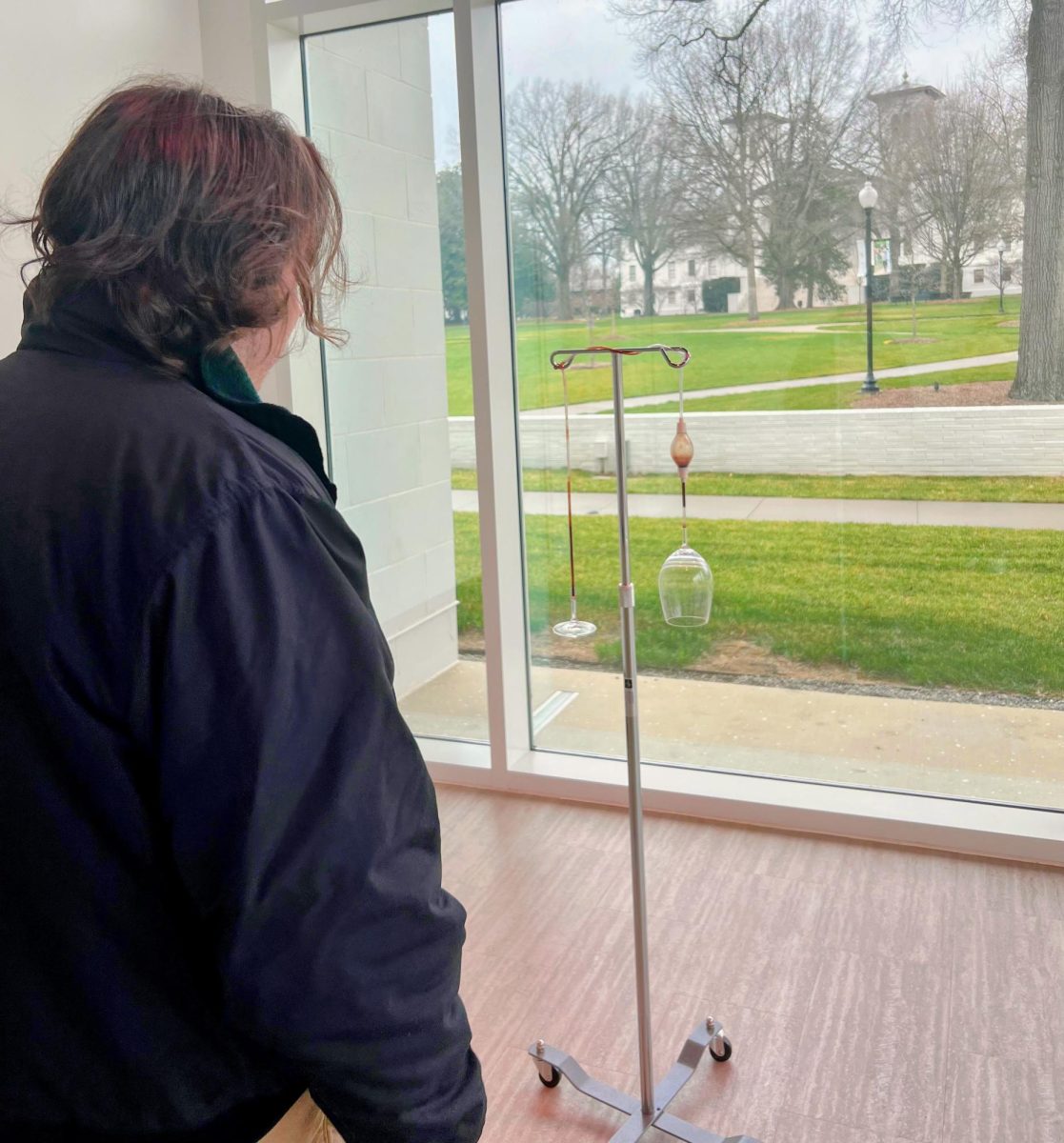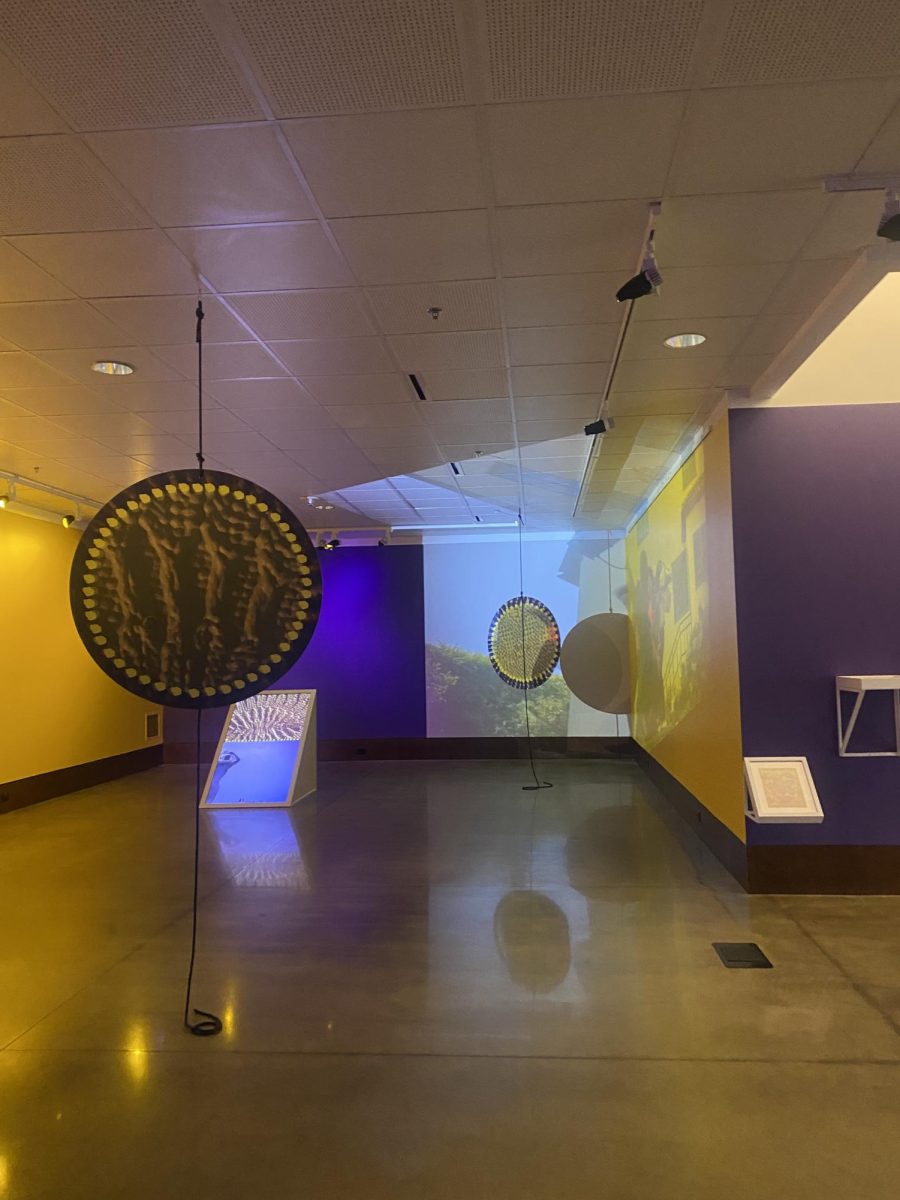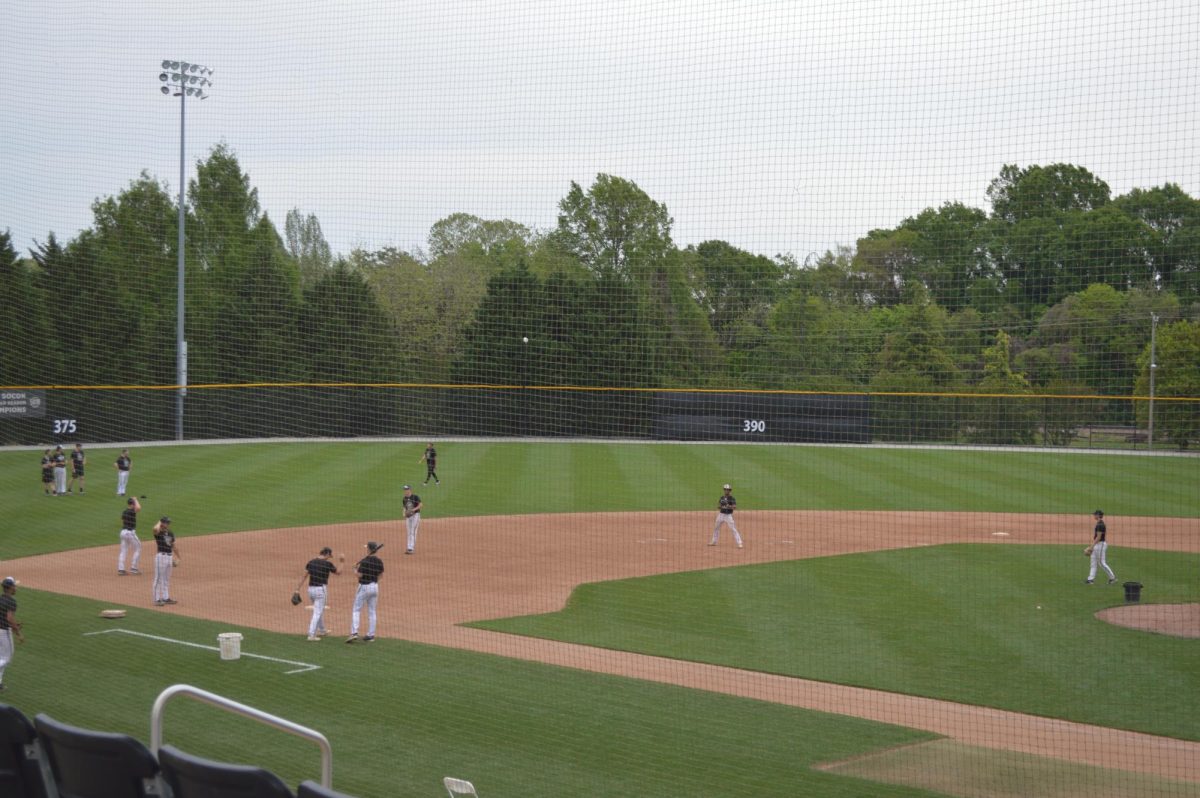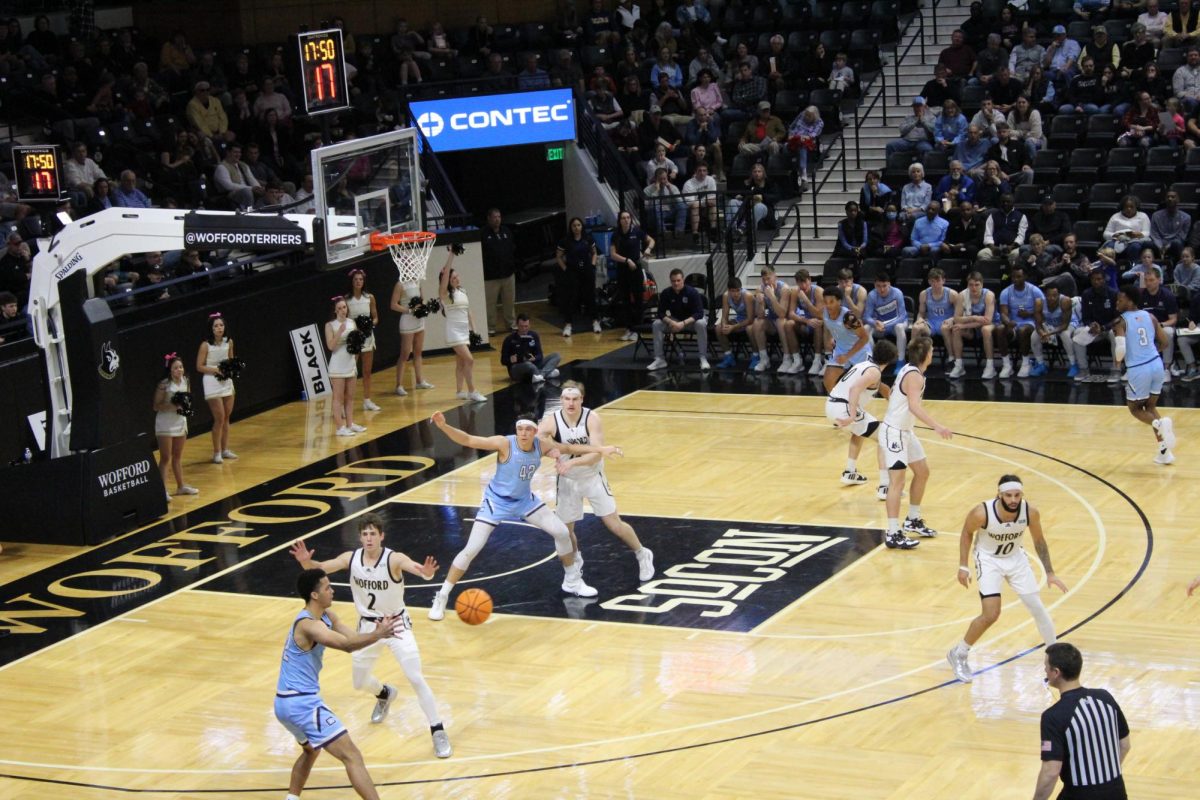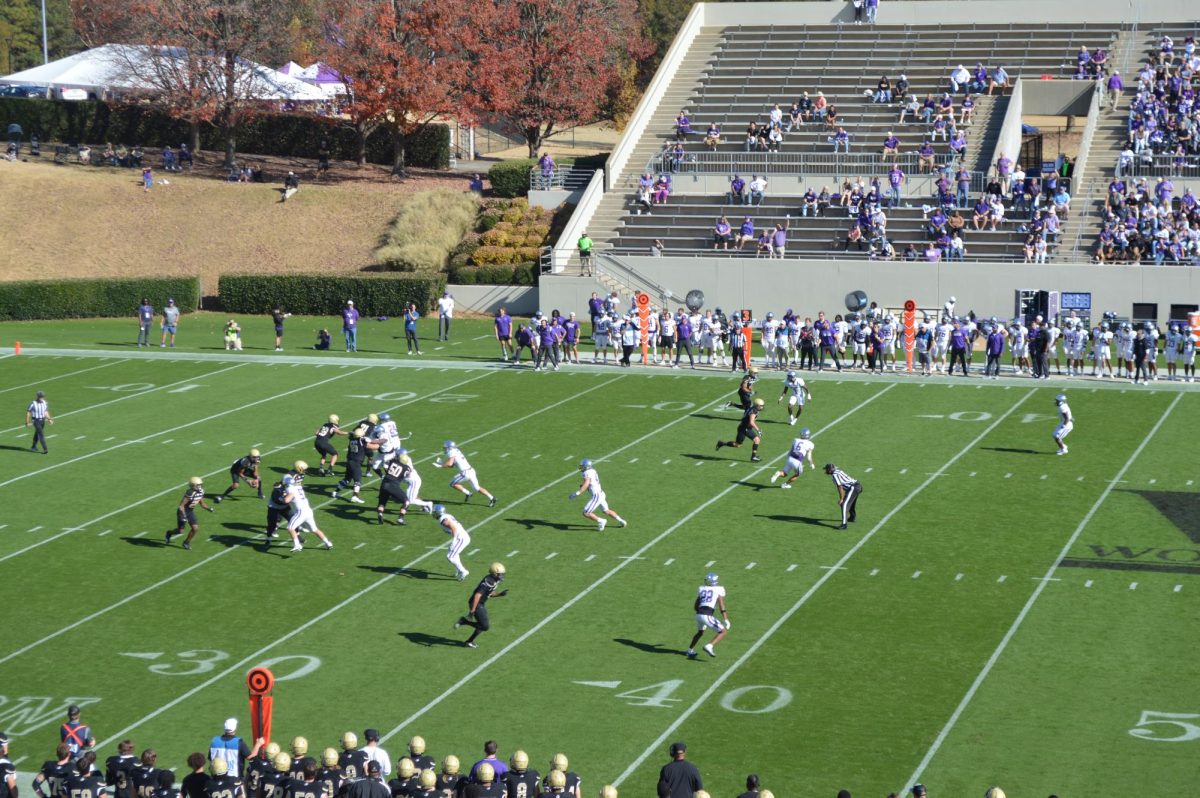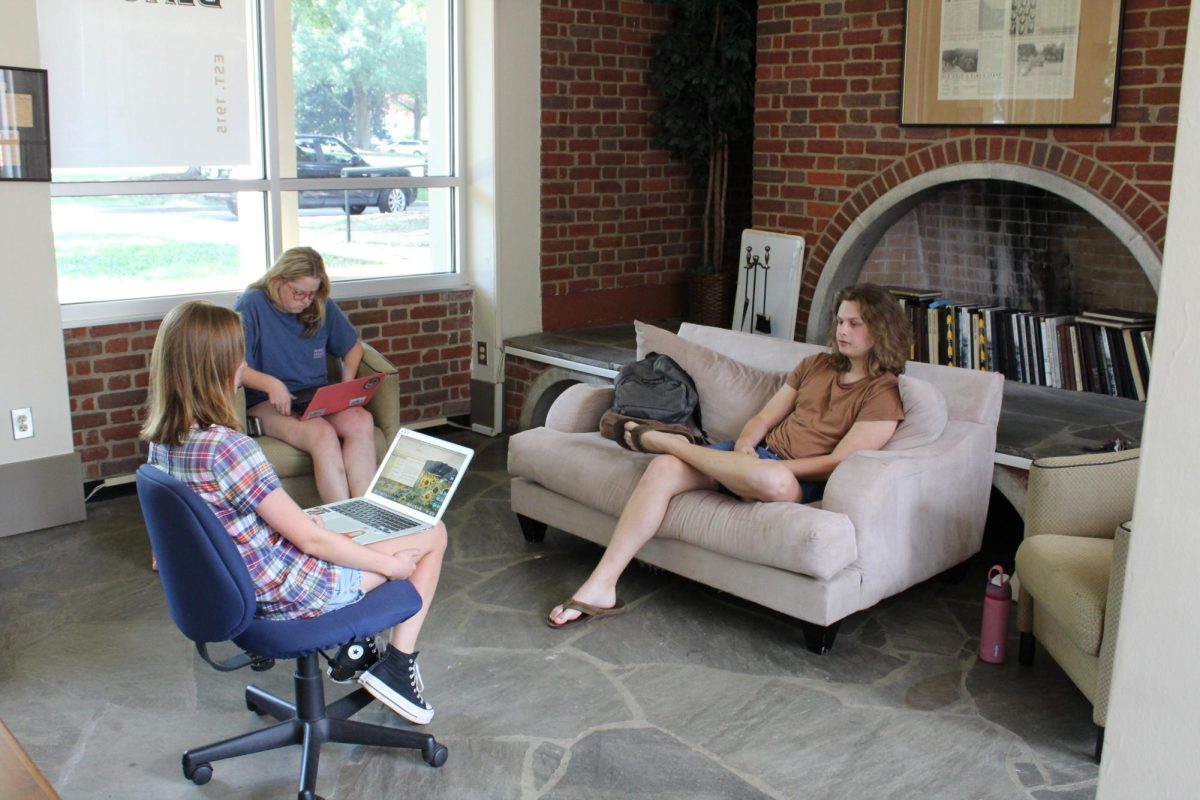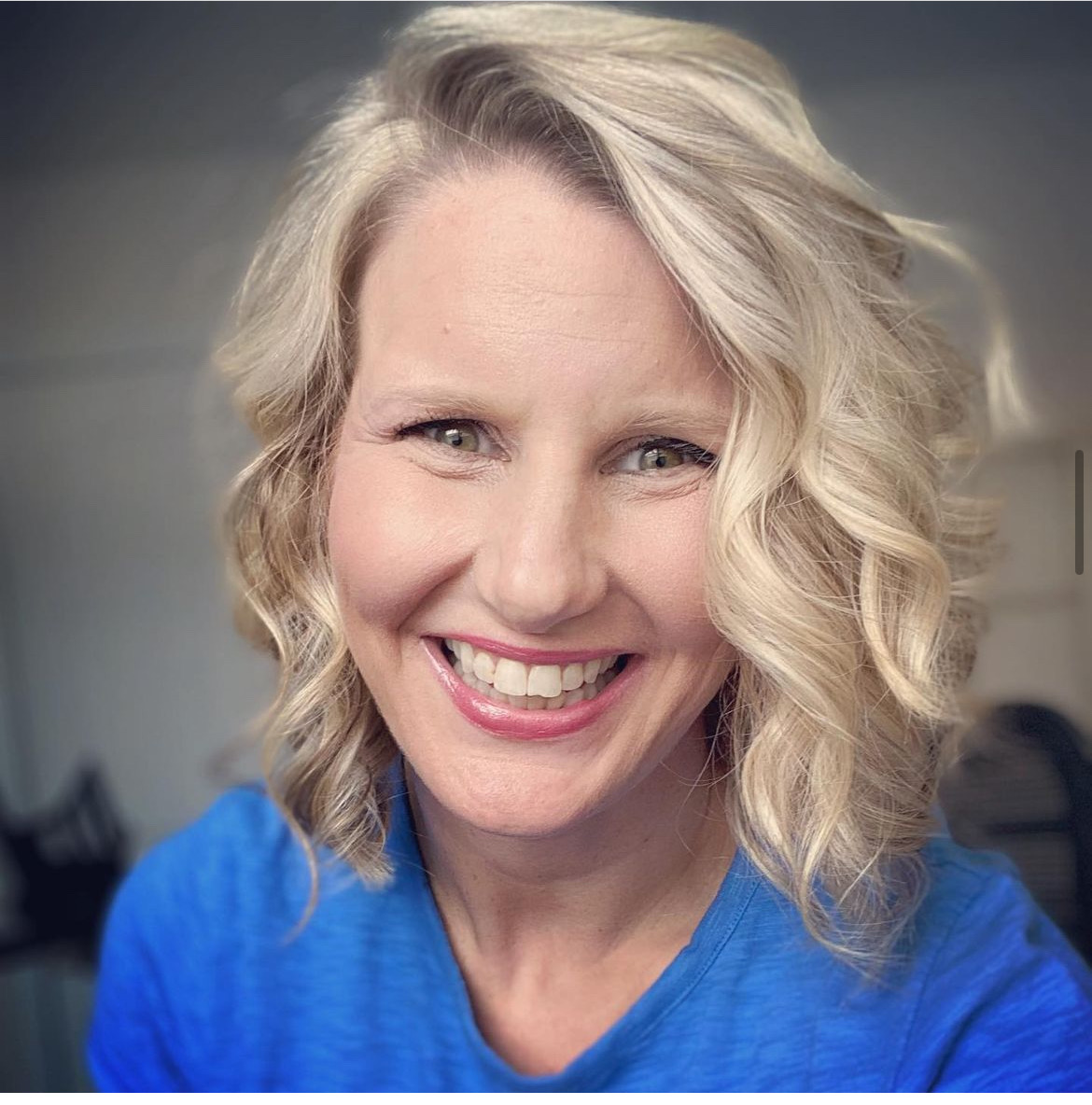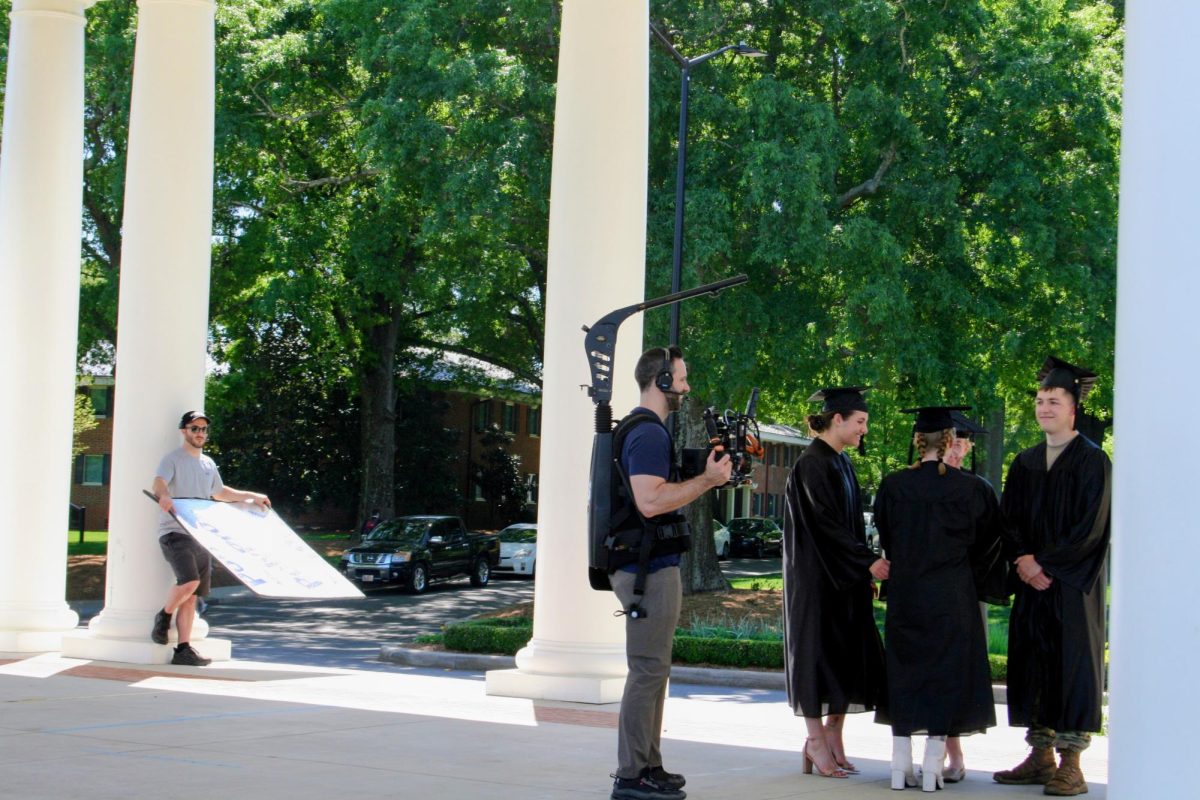By: Sarah Madden, Senior Writer
On the weekend of April 8, three Wofford students presented their individual research papers on nongovernmental organizations (NGOs) at the Notre Dame Student Peace Conference. The conference featured almost 60 speakers from around the country that gathered together as “members of the mosaic” in the field of peace building.
All three students are environmental studies and government double majors, including Karen Gravely,’16, Madison Guyton,’18 and Jordan Leonard,’18.
The conference featured an opening speaker, a keynote speaker, a documentary screening and a closing panel on interfaith relations. Between these presentations, there were breakout sessions of presentation panels, roundtable discussions or poster sessions. Guyton presented her paper in a breakout session panel called “How NGOs are Filling the Gap,” with Leonard and another presenter, who each gave 15 minute presentations and then took questions together as a panel.
Guyton’s paper covered operations of both local and international women’s NGOs in Iraq from 2003 to the present.
“I had to do a lot of self-teaching… While researching the networks of NGOs and women’s activists operating in Iraq, I had to do further research to understand the government regulations, UN resolutions and foreign policies that the sources mentioned. I also did my best to educate myself on Iraq’s previous government to better understand the changing landscape of women’s issues and women’s organizations in the country.”
Guyton says she drew from the teaching of multiple professors.
“Dr. DeMars gave really useful suggestions on methods to find sources that helped me uncover interesting connections in the networks of both international and local organizations operating in Iraq. Because of my humanities course with Courtney Dorroll, I tried to stay critical of the media sources’ portrayal of Iraqi women.”
For Guyton, the paper and presentation have opened up new opportunities for the future: “I just had an interview for a summer internship with one of the NGOs I studied.”
Gravely wrote on the political strategies of international environmental NGOs, specifically Greenpeace and Friends of the Earth, analyzing how each organization has or has not been able to expand environmental issues into human rights and social justice issues, such as the frameworks of climate justice or indigenous peoples’ use of resources.
“I suggest that if the organizations are able to recognize that environmental issues are inseparable from human justice issues, they can increase support, legitimacy and resources as well as more successfully complete their environmental mission,” she says.
For Gravely, the paper reinforced ideas she had already formed about environmentalism: “I specifically chose this issue because, as an environmentalist, I understand how easily we are dismissed as extremists, or tree huggers, so I wanted to see how a group of environmentalists use politics to combat this issue and still become successful international organizations. This paper added credibility to my belief that environmentalism can be a form of humanitarianism. Often, the issues are inseparable.”
While Gravely was affirmed in her research, Leonard says that she was pulled in a surprising direction by her investigation of “NGO Networks and the Fight Against the Lord’s Resistance Army (LRA).” Leonard says she studied the effectiveness of a network of NGOs and other state and non-state actors in combatting the LRA and Joseph Kony in Central and Eastern Africa.
“I focused on one specific NGO, Invisible Children, and the work that they did, especially through youth advocacy and film. Invisible Children lost its public credibility in late 2012, so my research focused a lot on where the network [they had] formed has gone since then and on a piece of technology they created called the LRA Crisis Tracker.”
An environmentalist that’s primarily concerned with climate justice and the political effects of global climate change, Leonard says she learned a lot about human rights and anti-genocide movements, as well as the power of NGOs.
“I think a lot of times when we think about how to fight violent groups like the LRA, we think only in terms of state actors and military power. NGOs harness so much power in the world that I really had not considered before,” she says. “I never expected that as a Government major I would become so interested in studying rebel groups and anti-genocide movements rather than climate change.”
Leonard says that she met two other people at the conference who were interested in studying conflict in Central and Eastern Africa, and that “it was so interesting to see how all of our research fit together to make a small impact on the overall fight for peace.”
Though three papers were presented, four were accepted. Mary Katherine Williamson,’16, a government and German double major, was unable to attend the conference. Her paper, covering the reactions of NGOs to the sexual assault crisis in Egypt, explored how effective awareness building could affect legislation.
“The fact that four Wofford students were selected says so much about what a strong institution Wofford is and how great the government department and professors are,” says Leonard. “The presenters were from all over the country, and we were able to represent Wofford among the group.”
Gravely says that most people she met at the conference had never heard of Wofford.
“The conference connected us to a larger institution that is more prominent in this specific field of peace building. It was a great opportunity to put our name out there, especially in such a respectable way.”
Guyton also emphasizes the rarity of three Wofford presentations: “I talked to one student presenter who had submitted a paper to the conference the previous two years without being accepted, and that really opened my eyes to how awesome it was that all our papers got accepted. I think that our acceptances highlight the quality of a Wofford education and the commitment of Wofford students to academics.”
All three presenters would like to thank Dr. William DeMars, professor and chair of the government department, for the guidance he gave in writing and researching as well as thank the Office of the Provost for aiding them in getting to the conference.

